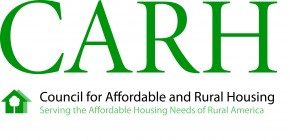- November 2022
- October 2022
- September 2022
- August 2022
- July 2022
- June 2022
- May 2022
- April 2022
- March 2022
- February 2022
- January 2022
- December 2021
- November 2021
- October 2021
- September 2021
- August 2021
- July 2021
- June 2021
- May 2021
- April 2021
- March 2021
- February 2021
- January 2021
- December 2020
- November 2020
- October 2020
- September 2020
- August 2020
- July 2020
- June 2020
- May 2020
- April 2020
- March 2020
- February 2020
- January 2020
- December 2019
- November 2019
- October 2019
- September 2019
- August 2019
- July 2019
- June 2019
- May 2019
- April 2019
- March 2019
- February 2019
- January 2019
- December 2018
- November 2018
- October 2018
- September 2018
- August 2018
- July 2018
- June 2018
- May 2018
- April 2018
- March 2018
- February 2018
- January 2018
- December 2017
- November 2017
- October 2017
- September 2017
- August 2017
- July 2017
- June 2017
- May 2017
- April 2017
- March 2017
- February 2017
- January 2017
- December 2016
- November 2016
- October 2016
- September 2016
- August 2016
- July 2016
- June 2016
- May 2016
- April 2016
- March 2016
- February 2016
- January 2016
- December 2015
- November 2015
- October 2015
- September 2015
- August 2015
- July 2015
- June 2015
- May 2015
- April 2015
- March 2015
- February 2015
- January 2015
- December 2014
- November 2014
- October 2014
- September 2014
- August 2014
- July 2014
- June 2014
- May 2014
- April 2014
- March 2014
- February 2014
- January 2014
OMB Plan to Reform Federal Government
CARH’S BROADCAST E-MAIL
April 13, 2017
On March 13th, the President signed an Executive Order instructing agencies to provide plans for reorganizing the Executive Branch. At CARH’s Spring Board meeting, the Department of Housing and Urban Development (HUD) and Rural Development (RD) explained they were awaiting implementing instructions on reorganization of the government and federal workforce. On April 12th, the Office of Management and Budget (OMB) published a Memorandum to all heads of federal government agencies and executive departments entitled, Comprehensive Plan for Reforming the Federal Government and Reducing the Federal Civilian Workforce. The Memorandum provides the implementing guidance.
The Memorandum requires all agencies to:
- Begin taking immediate actions to achieve near-term workforce reductions and cost savings, including planning for funding levels in the President’s Fiscal Year (FY) 2018 Budget Blueprint;
- Develop a plan to maximize employee performance by June 30, 2017; and
- Submit an Agency Reform Plan to OMB in September 2017 as part of the agency’s FY 2019 Budget submission to OMB that includes long-term workforce reductions. An initial, high-level draft of the Agency Reform Plan is due to OMB by June 30, 2017.
The Memorandum further outlines the steps that OMB will take to formulate a government-wide reform plan for publication in the President’s FY 2019 budget, including both legislative proposals and administrative actions. The plan will rely on three primary sources of input: agency reform plans, OMB-coordinated cross-cutting proposals, and public input.
According to OMB, when implemented, these reform efforts should accomplish the following objectives:
- Create a lean, accountable, more efficient government that works for the American people;
- Focus the Federal government on effectively and efficiently delivering those programs that are the highest needs to citizens and where there is a unique Federal role rather than assuming current programs are optimally designed or even needed;
- Align the Federal workforce to meet the needs of today and the future rather than the requirements of the past; and
- Strengthen agencies by removing barriers that hinder front-line employees from delivering results
CARH will perform an extensive review of this plan, and all relevant agency reform plans. We will continue to work with our members and industry stakeholders to ensure that staffing and regulatory and financial resources are maintained to provide adequate resources for the affordable rural rental housing industry.
If you have any questions, please contact us at carh@carh.org or 703-837-9001.





